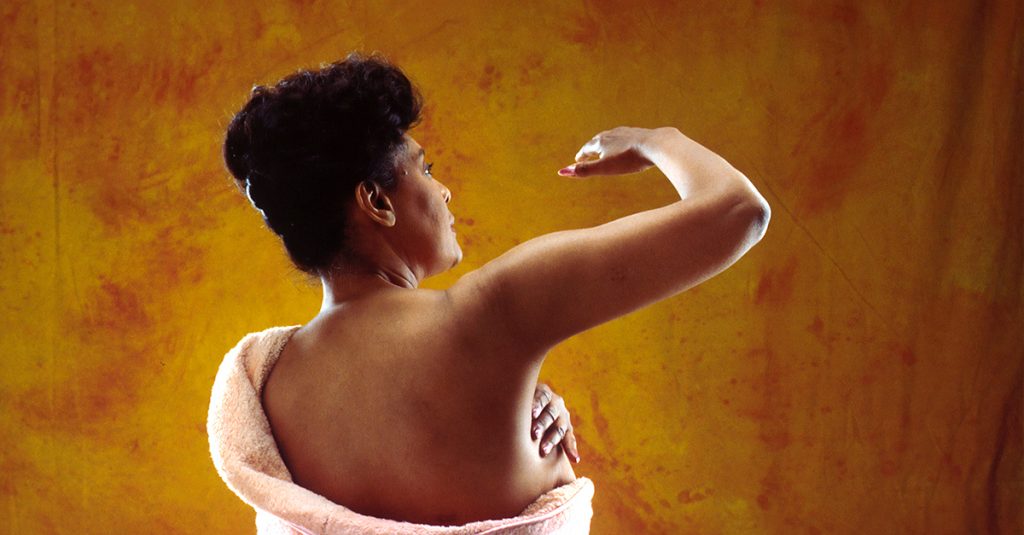The Main Risk Factors Of Breast Cancer

1 in 8 women will develop breast cancer (BC) in their lifetime1. More than 2 million new cases of this disease are diagnosed worldwide every year2. There are of course breast cancer risk factors.
What do you need to know to prevent illness? Is it possible to reduce your own risk of developing breast cancer? Let’s find out.
Written by Y. Timovskaya, Ph.D., doctor oncologist of the highest category, Member of ESMO. Together with @ Galishina Anna – Head of the Diagnostic Department of the Specialized Breast Center, doctor of radiation diagnostics of the highest category, member of ESR, EUSOBI.
8 major risk factors
It’s possible to conditionally identify the main factors in the development of breast cancer. There are only 8 of them! Of course, in general, there are many more risks and we have already written about some little-known ones. But the most significant are the following:
- Female gender. More than 80% of all breast cancer cases in the world are women.
- Age – the risk of developing breast cancer significantly increases with age. So, the peak incidence is observed at the age of 55-65.
- Complicated family history of breast cancer, ovarian and intestinal cancer.
- The presence of mutations in the brca genes.
- Metabolic disorders (obesity, diabetes mellitus, and insulin resistance).
RELATED ARTICLES
6. Hyperestrogenemia (increased concentration of estrogens in the blood), especially associated with the intake of hormonal drugs. And these are combined oral contraceptives (COCs), and hormone replacement therapy (HRT), and IVF.
7. Failure to comply with the healthy lifestyle rules, which leads to metabolic disorders.
8. Not having children or lactation or late childbirth.
New risks
In addition to the main risks, there are few that we are able to influence. They include:
Research suggests that women with low levels of vitamin D have a higher risk of breast cancer. This happens because vitamin D may play a role in controlling normal breast cell growth and may be able to stop breast cancer cells from growing.
👉Exposure to Chemicals in Cosmetics4
So, research strongly suggests that at certain exposure levels, some of the chemicals in cosmetics may contribute to the development of cancer in people. Such substances include parabens (the most common are methylparaben, propylparaben, ethylparaben and butylparaben) and phthalates.
👉Exposure to Chemicals in Food5
There’s a real concern that pesticides, antibiotics, and hormones used on crops and livestock may cause health problems in people, including an increase in breast cancer risk.
Now let’s talk about why we need all this information and what is the practical use of it?
Why use Healsens?

This isn’t just another health app
It’s your science-backed roadmap to better health, combining lab tests, screenings, and risk analysis—all in one place.
Why understand your risk factors?
Do all factors in the breast cancer development lead to the development of breast cancer? No.
Did all breast cancer patients have all these risk factors? No either.
At the same time, a combination of risk factors increases the risk of developing breast cancer. However, it is not yet possible to determine exactly which of 8 women will develop the disease. Yet doctors talk about the importance of understanding risk factors. But why?
There are situations when a woman has all the risk factors, and at the same time, she will never get sick with this disease. On the other hand, there are diametrically opposite situations when a woman does not have any risk factors except the first one, and she still gets breast cancer. However, such situations are marginal. They are located at the edges of the variation row for breast cancer patients.
In most cases, that is in 80% of patients with breast cancer, known risk factors played a role in the disease development. Thus, women very often unconsciously provoked progressing tumor processes through their actions. And a major part of the cause of this problem was ignorance. In other words, many people have never heard of risk factors that subsequently cost them their health. Therefore, all over the world, the information war against breast cancer is recognized as one of the most effective mechanisms to reduce mortality from this disease.
Follow us on Facebook|| Instagram || Telegram || Youtube
Variable and permanent breast cancer risk factors
It should be noted that risk factors can be divided into two groups. The first one includes those that we cannot affect, such as gender, age, family history, and the presence of gene mutations. In this case, if you are aware of them, your doctor should adopt an individual preventive care program and screening diagnostics. In all the other cases, it’s up to us to influence the risk factors. Thereby we can reduce our own risk of developing breast cancer.
It is important not only to know about breast cancer risk factors but also to realize that our health may depend on us. Of course, it is not possible to prevent breast cancer with 100% certainty. At the same time, we can reduce the risk of death through early diagnosis. Therefore, it is necessary to take into account the presence of risk factors and behave accordingly, considering your risk group.
Patients’ stories
So now, let’s get from theory to practice. We’ll go over two cases to illustrate how important it is to understand your risks. Subsequently, we will definitely devote a few future articles to this topic.
👉 Case 1. A 38-year-old woman with a family history of breast cancer. She didn’t have childbirth and lactation, but there is a record of pregnancy termination in her history at the age of 27. Since then, she has been constantly taking combined oral contraceptives (COCs) for contraception.
👉 Case 2. A 52-year-old woman with climacteric syndrome, type 2 diabetes, a history of 1 childbirth at 22, no lactation, 4 abortions, the last one at the age of 42. She has been taking hormone replacement therapy (HRT).
So, patients already have risk factors for developing breast cancer, which they cannot change. But these women increased the risk of the disease by taking additional hormonal estrogen-containing drugs. Of course, in spite of the above cases, not everyone using HRT will develop breast cancer. However, when the disease is already there, oncologists always hear regrets about the lack of awareness. If they had known that they had been increasing the risk, they would have acted differently. Only 1 in 8 factors is enough to play a key role in cancer development. Don’t add risks yourself. Take care of yourself.
First of all, forewarned is forearmed☝️. Awareness reduces breast cancer mortality.

